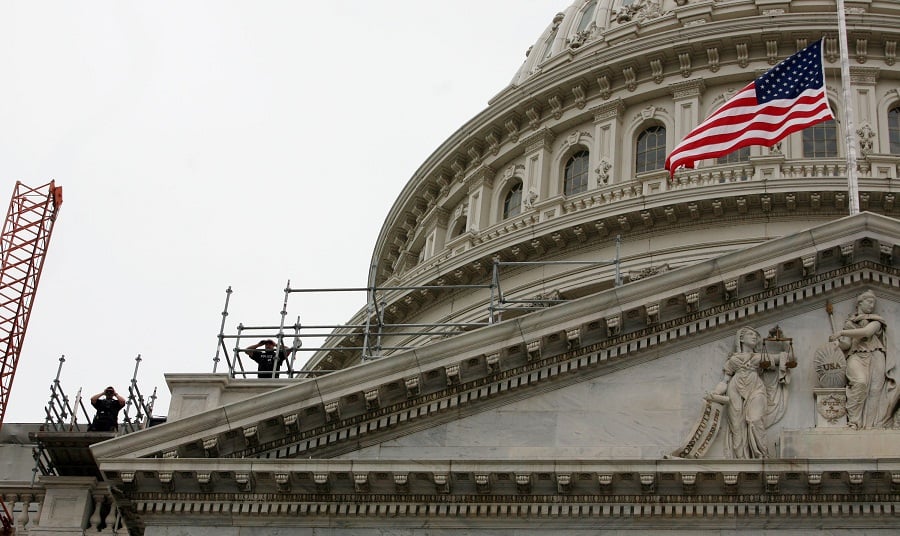Opposing Labor Department's fiduciary proposal tops the list of legislative and regulatory issues the trade group is focusing on.
When it comes to making a difference in the legislative and regulatory process in Washington, D.C., and across the country, some core principles apply no matter which side of the aisle you're on.
In a moderated conversation at last month's OneVoice conference — the Financial Services Institute's annual gathering for independent financial services firm executives — Karl Rove, former deputy chief of staff and senior adviser to President George W. Bush, and Robert Gibbs, former White House press secretary and longtime adviser to President Barack Obama, shared insights from their combined decades of experience in political campaigns and at the highest levels of government.
While they disagreed on a number of areas (as one would expect), Messrs. Rove and Gibbs concurred on a crucial aspect of effective advocacy: organizations that are successful over time in representing their members' interests are those that are active and engaged in dialogue with key legislators and regulators well before significant bills and rule proposals are introduced.
“The biggest way to make an impact is to show your face. Go see legislators back home — see them a year or two before you need to,” said Mr. Rove. “The people who are most effective in getting things done in D.C. are the people who are doing their homework every day.”
As regulators' and lawmakers' priorities for the year ahead come into clearer focus, I am pleased to say that — thanks to the hard work and support of our members and board — FSI stands in exactly this position.
With far-reaching proposals set to move forward in the near future — including the Department of Labor's effort to expand its definition of “fiduciary” and potentially price Main Street investors out of critical financial retirement advice, and Finra's initiative to create a vast new transaction and account monitoring infrastructure in the CARDS system — FSI has carefully and strategically built up our advocacy team and resources over the last several years to enable us to meet the challenge of impacting the outcome.
Our staff has grown from 9 in 2010 to nearly 30 and has a laser-like focus on legislative and regulatory issues at both the state and federal levels. Our budget for representing our members' interests has grown from $3.5 million in 2010 to $8.5 million today.
Looking ahead, we have worked hand-in-hand with our board and a broad cross-section of our membership, to develop a strategic game plan for 2015 that will ensure we are deploying our resources as effectively as possible in order to engage on the issues that will matter most to our industry both now and in the future.
FSI's core advocacy priorities for 2015 include:
• Opposing the DOL's pending revised proposal to expand the definition of “fiduciary” if it resembles the 2010 version in effectively banning commissions and restricting investors' access to retirement advice. The importance of our ongoing engagement on this issue has become even more apparent this year given recent strong indications that the White House supports the upcoming rule proposal.
In fact, a recent White House memo indicates that the proposal will be based on a number of misunderstandings about the work our members do for their clients. FSI has been to the White House to discuss this issue and will continue to engage the administration constructively for the good of our members.
• Working with lawmakers to find solutions to the retirement savings crisis and expand opportunities to save and invest through tax reform.
• Working with Finra to achieve its investor protection goals while ensuring its CARDS initiative does no harm to our members. We will also pursue improvements to the arbitration process.
• Helping to reduce unnecessary burdens on independent firms and advisers by working with regulators and elected officials on several critical issues, including:
— Increasing cybersecurity;
— Harmonizing investment adviser regulation;
— Creating a permanent fix to alleviate ongoing scrutiny (both from the IRS and elsewhere) of the independent contractor model;
— Better tax treatment for small businesses; and
— Ensuring that Congress conducts effective oversight of regulators.
— Fighting to reduce unnecessary burdens on financial advisers by pursuing initiatives to:
— Simplify and streamline Finra's rules governing communications with the public and its rules on gifts and non-cash compensation;
— Advocate for a fair and reasonable system for BrokerCheck disclosures; and
— Encourage additional retrospective rule reviews focusing on regulatory requirements that may no longer be necessary or could be more efficient.
— Lastly, FSI will strive to make regulation and legislation work for Main Street investors by:
— Advocating for a workable fiduciary standard for all retail investors;
— Espousing regulatory examinations of federally-covered RIAs through the use of third-party auditors;
— Encouraging simplified and streamlined client disclosures; and
— Promoting financial literacy and efforts to prevent elder financial abuse.
With a broad array of critical issues coming to the fore in 2015, FSI will capitalize on the strategic investments our members have made over the last decade in order to establish a strong and effective advocacy infrastructure that gives our industry a “seat at the table” on the crucial legal and regulatory debates mentioned above.
Just as importantly, though, we will continue to invest in building new relationships based on constructive engagement with lawmakers and regulators to ensure that we have a voice on the bills and proposals that will impact our industry in the years ahead.
Dale Brown is president and chief executive of the Financial Services Institute Inc.







